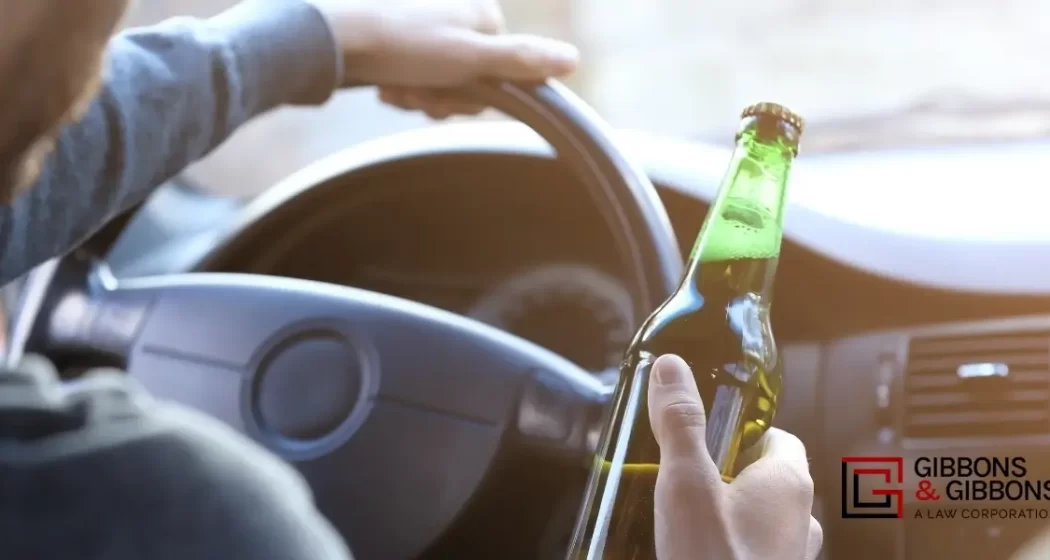|
|
Last
Modified on
Nov 11, 2025
DUI remains one of California’s most widespread criminal offenses, with consequences that persist well into the future. Whether you’ve been recently arrested or are trying to understand the implications of a past conviction, a common question is, “How long does a DUI stay on your record in California?” The response requires a more detailed explanation than just counting years.
Your criminal record, driving record, and insurance record each follow separate rules, which result in different consequences.
DUI Convictions and Your Criminal Record
In 2020, there were 95,957 DUI arrests in California. Of these, 4.4% were felony arrests, and 95.2% were misdemeanor arrests. The remaining 0.5% were juvenile arrests.
California requires that DUI convictions remain on criminal records permanently. Without taking active legal measures to erase your conviction, it will stay on your criminal record and be visible during background checks by employers and other entities such as licensing agencies and landlords.
The conviction becomes an enduring element of your legal record that can negatively affect employment prospects and professional credentials while shaping public opinion about you. Legal remedies such as expungement provide a way to lessen long-term negative effects and secure a new beginning after fulfilling your sentence and showing rehabilitation.
DUI Expungement
In some cases, your DUI record may be expunged from your criminal record. To do so, you must successfully complete all the terms of your probation, you must not have gone to a state prison, and you must not be currently charged with another criminal offense.
Expungement maintains the original conviction but changes your record to indicate the case dismissal. Expungement serves as a useful tool for employment applications and some licensing requirements. A DUI expungement does not prevent the initial offense from being counted as a prior if you receive another DUI arrest within ten years.
The California 10-Year Period
California considers prior DUI offenses within the previous 10 years when determining penalties for new DUI convictions. During this time period, prosecutors can use previous DUI convictions to increase penalties for fresh DUI charges. Legal penalties count from your initial arrest or conviction date instead of when you finished probation or settled fines.
For example, if you received a DUI conviction in 2016 and face arrest in 2025, this previous conviction may lead to an upgraded charge to a second DUI, resulting in tougher penalties. This 10-year period is significant because it impacts fines, jail time, license suspension duration, and mandatory DUI programs. If more than 10 years have passed, a second DUI may be treated as a new one.
DUI and Your Driving Record
A DUI conviction in California affects your criminal record and your driving record with the DMV. The DMV keeps a DUI on your driving record for ten years after the offense occurred. The DMV maintains this record independently from your criminal history to monitor driving patterns and implement consequences through license suspensions or revocations for repeated offenses.
Law enforcement agencies, courts, and insurance companies can view the DUI during its 10-year visibility period. A DUI conviction can cause limitations when trying to get specific driving licenses, such as a CDL, and might lead to harsher consequences if you receive another DUI within 10 years. A DUI cannot be cleared from your DMV history through expungement or legal means and will only disappear from your record after 10 years.
A DUI and Your Insurance
While insurance companies don’t have a “record” per se for you, they do track your driving habits to determine rates and premiums. Depending on your provider, a DUI can affect your rates for years. A DUI is considered a serious offense by insurance companies and can lead to:
- Significant premium increases
- Loss of “good driver” discounts
- Denial of coverage or policy cancellation
A DUI conviction in California demands that you secure an SR-22 form, which serves as proof of your state-required minimum insurance coverage. A DUI conviction requires drivers to keep an SR-22 certificate for an extended period of time. Once the 10-year period ends, your DUI record gets removed from your driving history, which may result in insurance rates decreasing to standard levels if you stay infraction-free.
The California Department of Motor Vehicles (DMV) provides statewide guidance on DUI-related issues through its detailed information on license suspension procedures and SR-22 requirements, as well as the duration a DUI remains on driving records.
The California Department of Health Care Services (DHCS) supplies a listing of state-approved DUI education programs required for drivers who need to reinstate their licenses or meet court requirements.
FAQs
How Long Does a DUI Stay on Your Background Check in California?
A DUI remains visible on California background checks forever unless it receives formal expungement. Potential employers or landlords might find the conviction during background checks, even 10 years after the offense. After 10 years, the DUI will no longer appear in DMV records, but it will stay on criminal records unless expungement occurs.
Can You Get a DUI Removed From Your Record in California?
Yes, it is possible to get a DUI removed from your record in California if you meet certain requirements. California residents have the option to file a petition for expunging a DUI when they have finished their probation and fulfilled every court-imposed condition. Expungement alters the plea to “not guilty” and dismisses the case while leaving the conviction intact.
What Happens to a DUI After 10 Years in California?
After 10 years, DUI convictions in California become ineligible for sentencing enhancements as prior offenses. The DUI offense no longer affects your DMV record for penalty calculations, which prevents additional penalties for subsequent DUI offenses. Your criminal background check may display this conviction unless you obtain an expungement, and insurance companies may still consider it according to their internal guidelines.
How Much Does It Cost to Expunge a DUI in California?
California DUI expungement costs differ based on whether legal representation is used or the individual files for the expungement on their own. Certain counties require filing fees, while attorney expenses depend on case complexity and experience level. Self-managing the process saves money but may require more time to complete. Self-filing results in minimal costs, whereas legal assistance can push expenses much higher.
Contact Gibbons & Gibbons, A Law Corporation
If you were convicted of a DUI, there may be options for you to alleviate the penalties of the conviction. At Gibbons & Gibbons, we can look at the facts of your case and inform you of your options. Contact us today to learn more.





